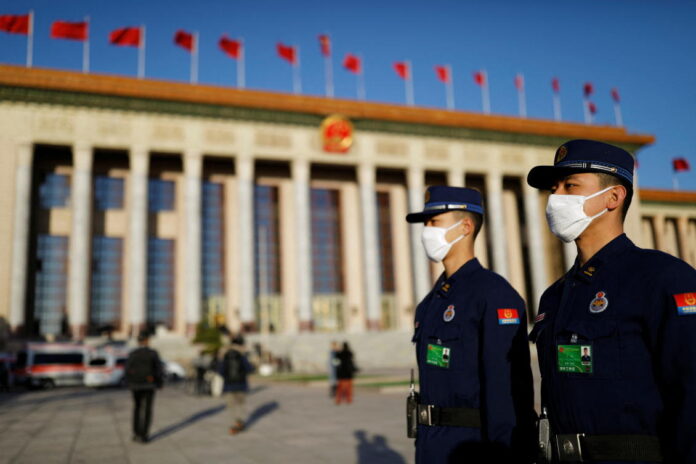BEIJING: China is raising its defense spending in 2022 by 7.1 percent to $229 billion, up from a 6.8 percent increase the year before.
Saturday’s announcement marks a continuation of the robust spending that has given China an increasingly powerful military that is challenging the US armed forces’ dominance in the Indo-Pacific region.
China has the world’s second-largest defense budget after the US, allowing it to maintain the largest standing military, with 3 million personnel and an arsenal of advanced weaponry, including two aircraft carriers with more on the way, stealth fighters, an advanced missile force and nuclear-powered submarines.
China has maintained the drive to expand and modernize its armed forces despite high levels of government debt and a slowing economy, partly as a result of the coronavirus pandemic.
The government says most of the spending increases will go toward improving welfare for troops. Observers say the budget omits much of China’s spending on weaponry, most of which is developed domestically.
The People’s Liberation Army exercises a strong political role as the military branch of the ruling Communist Party, overseen by President and party leader Xi Jinping, who heads the government’s armed forces commissions.
The military is largely designed to maintain its threat to use force to bring self-governing Taiwan under its control, although it has also grown more assertive in the South China Sea, the western Pacific, the Indian Ocean and elsewhere.
In his address to Saturday’s opening session of the ceremonial legislature, the National People’s Congress, Premier Li Keqiang said China would “fully implement Xi Jinping’s thinking on strengthening the armed forces and the military strategy for the new era … and strengthen party leadership and party building in all aspects of the military.”
Li indicated no change in China’s approach to Taiwan, which it threatens to annex by force if necessary.
China will “advance peaceful growth of relations across the Taiwan Strait and the reunification of China,” Li said. “We firmly oppose any separatist activities seeking Taiwan independence and firmly oppose foreign interference.”
Russia’s invasion of Ukraine sparked conjecture that China might be more disposed to use force against Taiwan if it sensed a lack of resolution on the part of the US and its allies.
Sign in
Welcome! Log into your account
Forgot your password? Get help
Password recovery
Recover your password
A password will be e-mailed to you.

